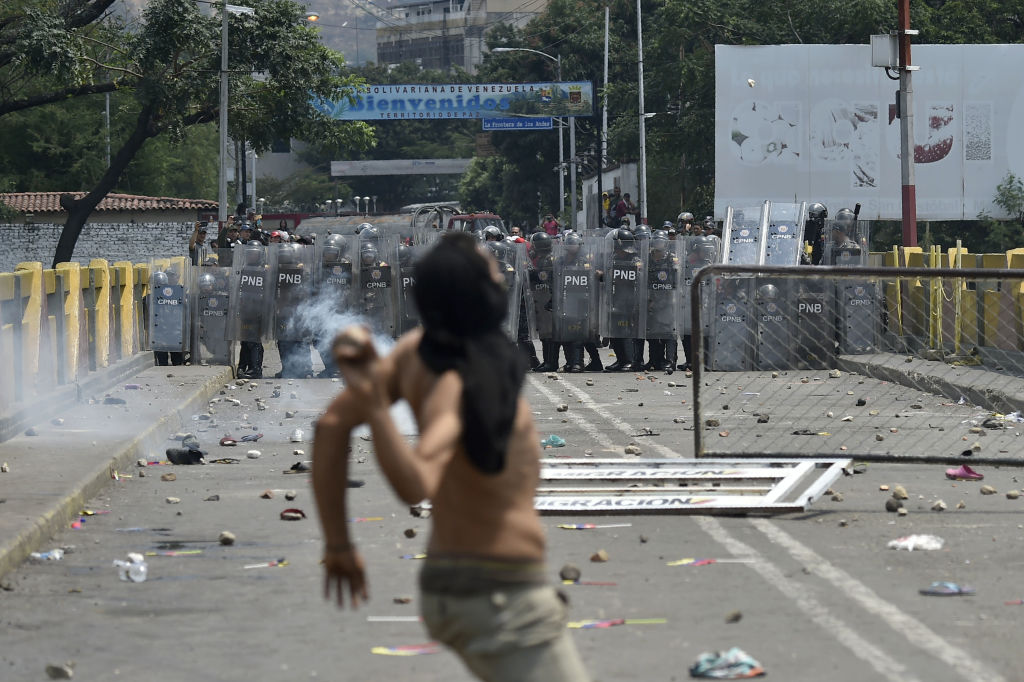As protests intensify, Maduro's blockade has begun to falter in Venezuela


A free daily email with the biggest news stories of the day – and the best features from TheWeek.com
You are now subscribed
Your newsletter sign-up was successful
The opposition broke through Venezuelan President Nicolas Maduro's blockade for the first time on Saturday, when a humanitarian aid truck crossed the border from Brazil.
With a skyrocketing inflation, widespread hunger, and hospitals lacking medicine, the international community — led by the United States — has been attempting to deliver aid to Venezuela. But Maduro has placed an embargo on any international supplies entering the country. The blockade stems from a political crisis in Venezuela, in which the opposition, led by internationally recognized interim President Juan Guaido, has questioned the legitimacy of Maduro's presidency.
The opposition movement has vowed to forcibly bring the aid into the country. The New York Times reported that their ability to do so effectively would signal Maduro's "loosening grip on power." Per The Washington Post, the opposition is also testing the military's loyalty to Maduro by "encouraging the armed forces to disobey" the blockade orders — indeed, three members of the Venezuelan National Guard abandoned their posts at the border and defected to Colombia.
The Week
Escape your echo chamber. Get the facts behind the news, plus analysis from multiple perspectives.

Sign up for The Week's Free Newsletters
From our morning news briefing to a weekly Good News Newsletter, get the best of The Week delivered directly to your inbox.
From our morning news briefing to a weekly Good News Newsletter, get the best of The Week delivered directly to your inbox.
The truck's crossing coincided with intensified protests on the Colombia-Venezuela border on Saturday, which involved Venezuelan authorities shooting volleys of tear gas on protesters. Some opposition leaders also reported the use of live fire.
As it stands, more trucks are moving toward the Colombia border.
A free daily email with the biggest news stories of the day – and the best features from TheWeek.com
Tim is a staff writer at The Week and has contributed to Bedford and Bowery and The New York Transatlantic. He is a graduate of Occidental College and NYU's journalism school. Tim enjoys writing about baseball, Europe, and extinct megafauna. He lives in New York City.
